Elden Ring classes: Strengths, weaknesses and which to choose
Elden Ring offers 10 different starting classes, and nine are easy recommendations
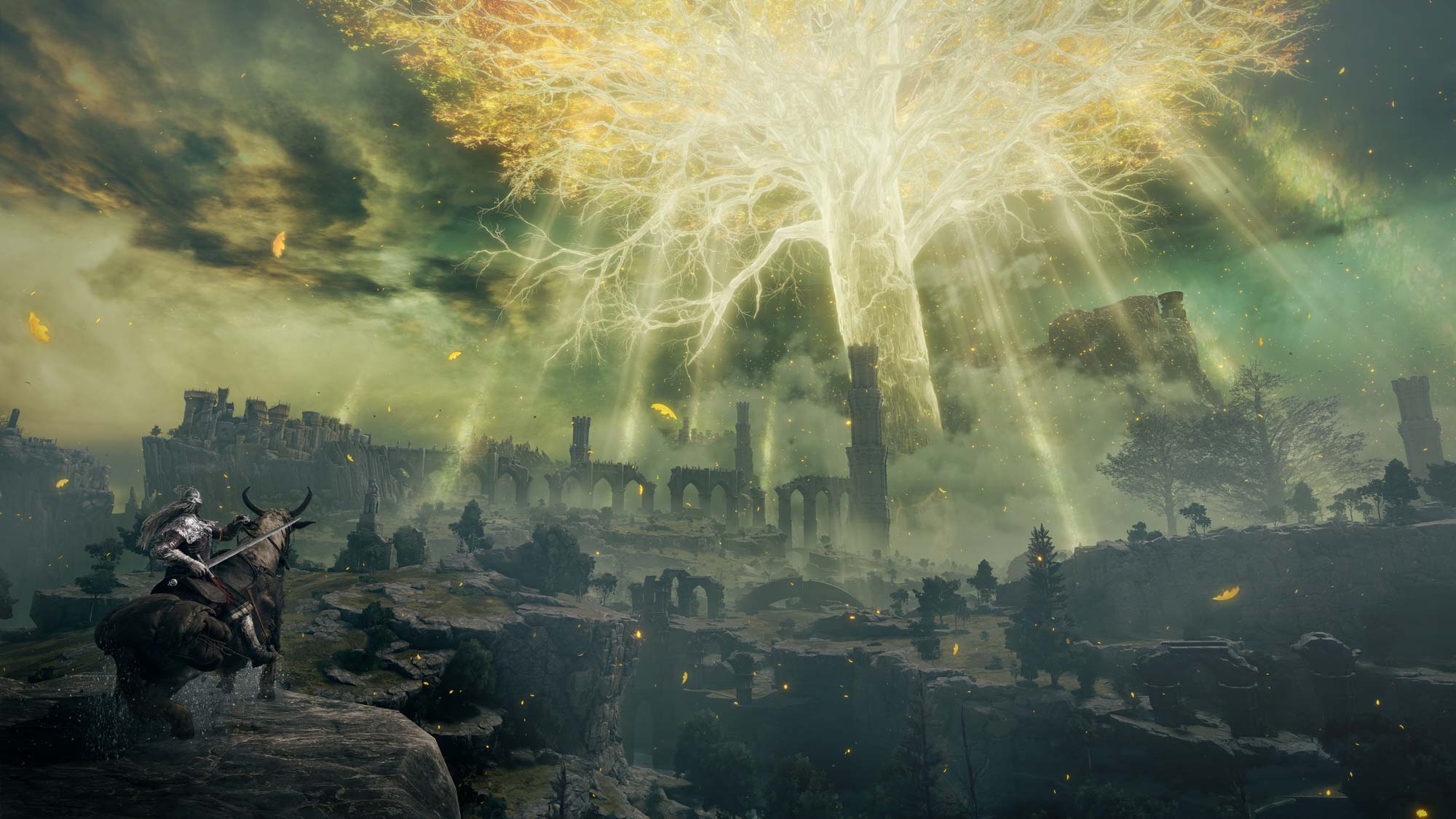
Elden Ring is a demanding game. No matter what your experience level or playstyle, you can expect a lot of difficulty, devastation and death along the way. However, you can also expect soaring moments of triumph as you conquer seemingly impossible challenges. It’s all about mastering your preferred playstyle, and the first step is figuring out what that playstyle should be.
Elden Ring offers 10 different starting classes, and there’s something for everyone. Whether you want to begin as a hardy melee fighter, a crafty mage, a cunning archer or a mix of all three, there’s a starting class in Elden Ring sure to suit your tastes. If you want an extra challenge, there’s also a class that lets you start off with absolutely nothing, save for a simple wooden club.
The good news is that no matter which class you choose, you can alter your stats any way you wish, and equip any gear you like, as the game progresses. The starting classes are just that: places to start. So, to start off Elden Ring on the right foot, here are the pros and cons of each starting class.
A note on stats and equipment
The Elden Ring wiki has a comprehensive page that compares starting class stats and equipment. There are two reasons why I want to avoid giving the same information here:
- There’s no reason to rehash the exact same information as the wiki
- This page is primarily for new players, who may not have an innate understanding of what all the stats mean, anyway
Instead, we’ll discuss general pros, cons and playstyles. For more comprehensive information, consult the wiki, or the game itself.
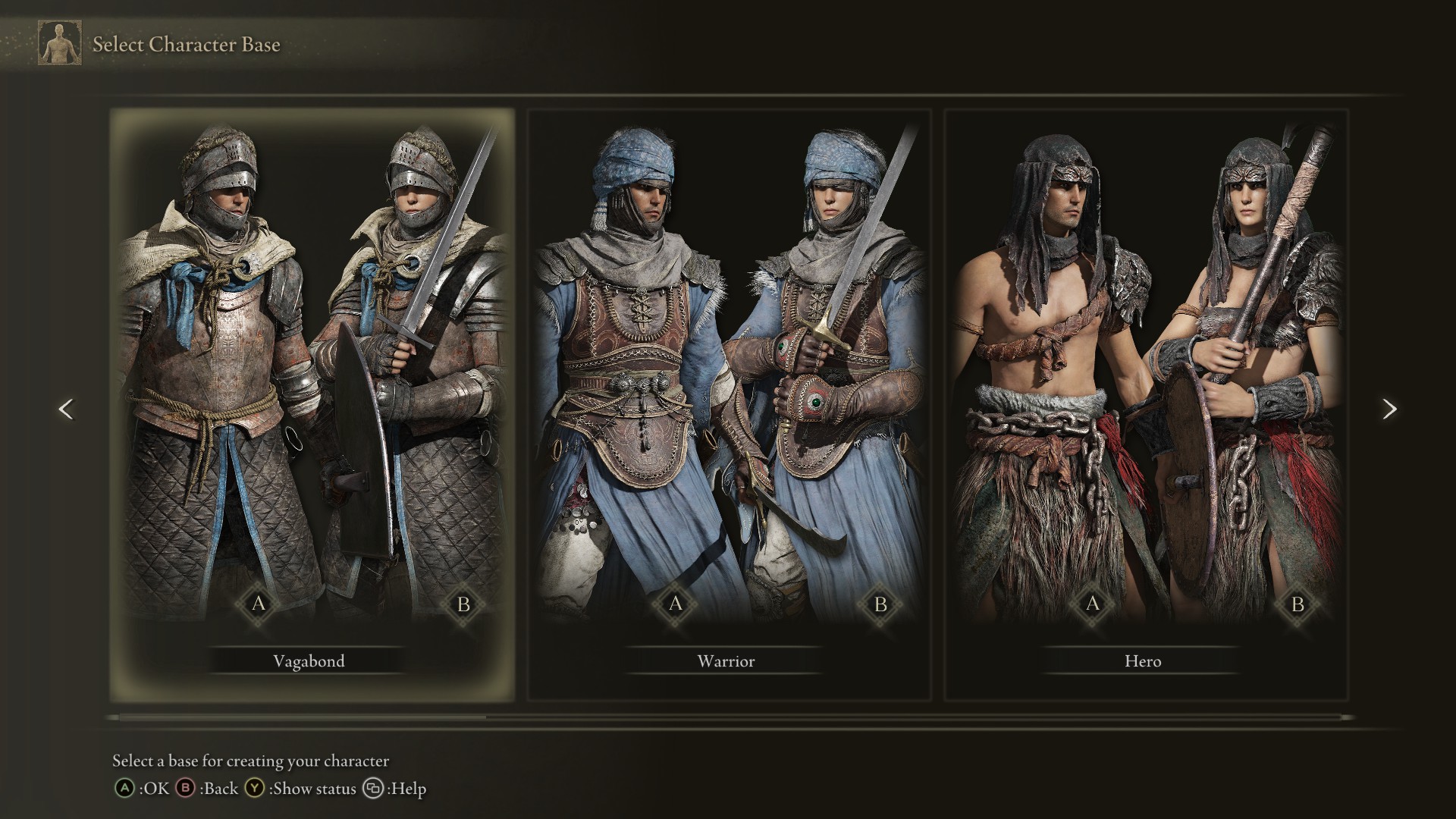
Vagabond
Description: A hardy melee fighter with a variety of armaments.
Playstyle: Choose the Vagabond if you want the quintessential Soulsborne experience: getting up close and personal with your enemies, learning to block and dodge as you go. The Vagabond comes with high HP and strength, making him well-suited to melee combat with his sword, shield and halberd. You’ll slash enemies into submission, ideally one-on-one.
Get instant access to breaking news, the hottest reviews, great deals and helpful tips.
Pros: High strength and health; Intuitive starting gear
Cons: No ranged weapons; No magic
Warrior
Description: A dexterous melee fighter with light armor and dual swords
Playstyle: If you like your melee fighters agile and versatile, the Warrior is a compelling choice. You’ll still fight most enemies head-on, learning their patterns and dodging frequently. What sets the Warrior apart is that he (or she) starts with two scimitars and a relatively weak shield. This means that while you can block some damage, you’ll probably want to dual-wield instead and learn how to avoid melee damage.
Pros: Dual-wielding is fun; Good stats for curved swords and bows
Cons: Less health than most melee classes; No ranged weapons
Hero
Description: A powerful melee fighter with an axe and shield
Playstyle: If you want a melee fighter with essentially no aptitude for magic or ranged weapons, the Hero is the way to go. Unlike the Vagabond and the Warrior, the Hero has low dexterity, meaning you can lean into strength-based weaponry. He (or she) also has pretty high health, so you can take a few hits while you dish them out. Pick Hero if you eventually want to wield two-handed weapons.
Pros: High strength and health; Good starting weapons
Cons: No aptitude for ranged weapons or magic; Armor doesn’t mitigate much damage
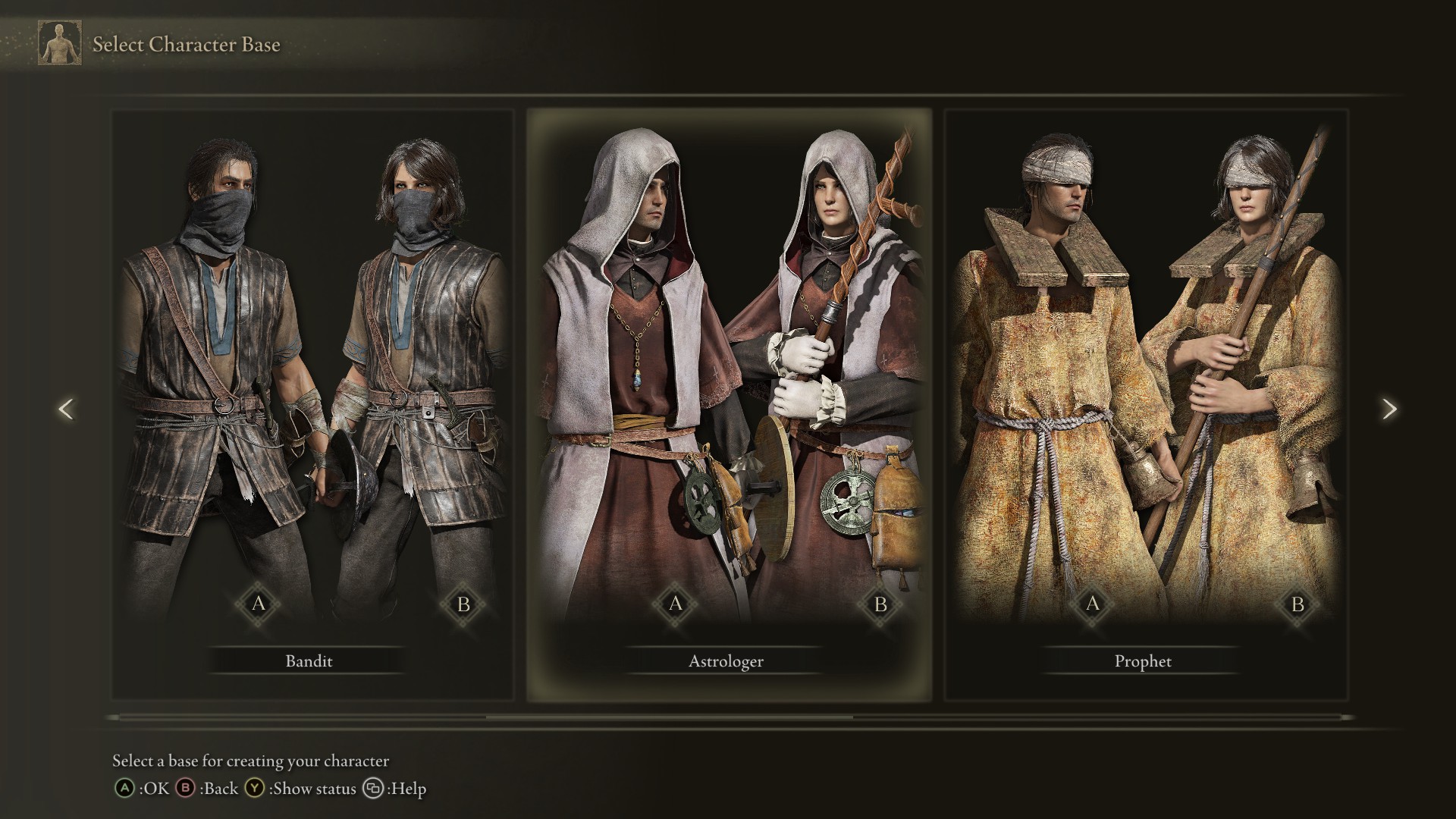
Bandit
Description: A versatile explorer with a variety of gear
Playstyle: The Bandit is all about making the most of Elden Ring’s open world. His (or her) highest combat stat is Dexterity, which is useful for the knife and bow that he carries. But his highest stat overall is Arcane, which affects how often you find items in the world — and how good those items are. Arcane also helps with spellcasting, if you choose to pick that up later in the game.
Pros: Great at finding items; Competent melee and ranged fighter
Cons: Spellcasting requires huge investments; No standout combat skills
Astrologer
Description: An arcane spellcaster with a staff and magic spells
Playstyle: The Astrologer is an easy recommendation for players who want to go the offensive spellcaster route. While the Astrologer starts with a sword and shield, his (or her) main focus is on Glintstone sorcery, which can dish out tremendous damage at a range. With high Mind and Intelligence stats, the Astrologer can learn multiple spells and cast them repeatedly. But in a melee fight, he won’t last long.
Pros: Powerful spellcasting; Robust starting magic
Cons: Low health and stamina; Weak melee equipment
Prophet
Description: A holy spellcaster with healing and fire
Playstyle: If you want to focus on holy magic, the Prophet is one possibility. He (or she) starts with high Faith and Mind stats, which govern how many spells he can learn and how often he can cast them. His health and strength are low, but not abysmally so, and his short spear can keep most enemies at a healthy distance. He also starts off with both healing magic and an offensive fire spell.
Pros: Can play offensively or defensively; Versatile starting spells
Cons: Not that durable; Weak starting shield
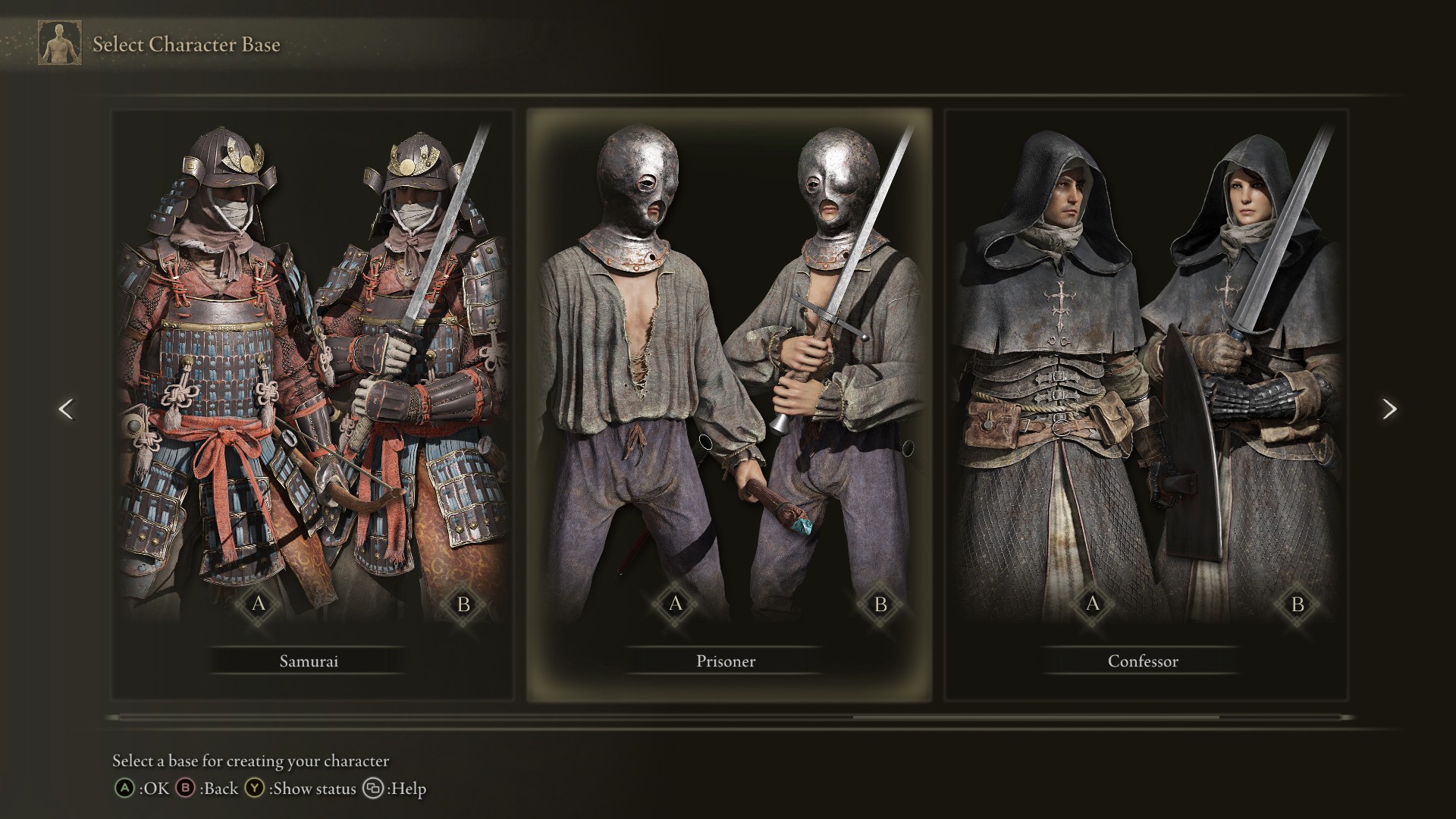
Samurai
Description: A versatile melee and ranged fighter
Playstyle: The Samurai is the perfect choice for players who want both ranged and melee options, but don’t care about spellcasting. To start, you’ll get a katana, a longbow and a shield, which should give you an idea of how to handle most encounters. The Samurai boasts high Dexterity, which is great for ranged combat, as well as decent Strength, health and stamina, which give him (or her) an advantage in melee fights.
Pros: Great physical stats; Useful starting equipment
Cons: No spellcasting; Mediocre starting shield
Prisoner
Description: A dexterous fighter and spellcaster
Playstyle: For players who can’t decide whether they want to fight enemies up close or from a distance, the Prisoner is a good choice. His (or her) high Dexterity and Intelligence mean that he can dish out plenty of damage with his Estoc, or his Glintblade sorcery. He has decent health, stamina and focus points, so players can make a few mistakes while they figure out which playstyle works best for them.
Pros: Versatile playstyle; Well-rounded stats
Cons: Weak starting armor; Doesn’t excel at anything
Confessor
Description: A versatile holy spellcaster
Playstyle: The Confessor is where you’ll want to start if you want both melee capabilities and holy Incantations. He (or she) starts with a strong sword and shield, as well as healing magic and the stats to use all of them equally well. The Confessor has high survivability, since he can block most damage and heal the rest, although he’s neither as durable as a pure melee class, or as powerful magically as a pure spellcaster.
Pros: Highly durable; Good starting gear and spells
Cons: Low item discovery; Not much health
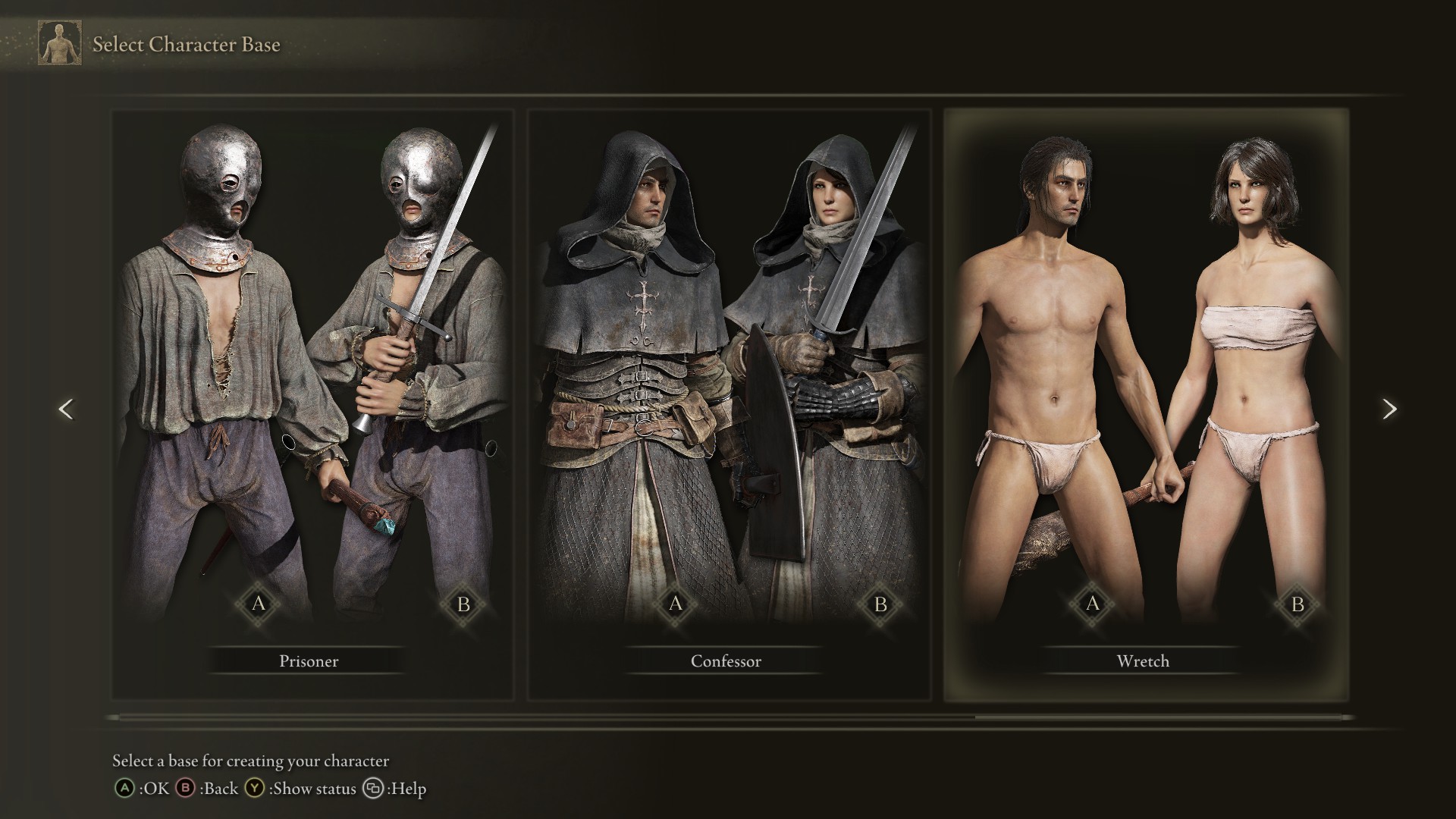
Wretch
Description: A nearly naked warrior with only a club
Playstyle: If you’ve played a Soulsborne game before, you might make a beeline for the Wretch. If you haven’t, though, you may want to steer clear. The Wretch is the weakest starting class, with low stats across the board, absolutely no defensive equipment and only a clumsy wooden club to his (or her) name. The flip side is that you can customize him any way you like — if you survive long enough to earn better weapons and gear.
Pros: Tremendous customization potential; Extra early-game challenge
Cons: Too punishing for newcomers; No “best” route for leveling up
Elden Ring starting class recommendations
Since we're trying to help first-timers choose an Elden Ring class, I should at least take a crack at recommending a few options. Vagabond seems like the most obvious choice for melee fighters, although Samurai has a lot going for it as well, particularly since you can use a bow to lure out enemies one at a time.
On the spellcasting side, I think Confessor is versatile enough to survive anything the early-game can throw at you. Likewise, I think Prisoner is a little more durable than some of the “pure” spellcasting choices.
The only class I wouldn’t recommend for first-timers is Wretch — and the game’s director said as much, too. Frankly, Elden Ring has enough systems to master without having to spend your first hard-earned Runes on expensive weapons and armor. It’s also daunting to have no idea which stats will be helpful, and which will be a waste, especially since you can’t re-spec your character until much later in the game.
Once you get underway, be sure to check out our Elden Ring tips to help you survive, and our guide to Margit the Fell Omen if you’re having trouble with the first boss. Also see our guide on how to beat Starscourge Radahn in Elden Ring.

Marshall Honorof was a senior editor for Tom's Guide, overseeing the site's coverage of gaming hardware and software. He comes from a science writing background, having studied paleomammalogy, biological anthropology, and the history of science and technology. After hours, you can find him practicing taekwondo or doing deep dives on classic sci-fi.
 Club Benefits
Club Benefits





